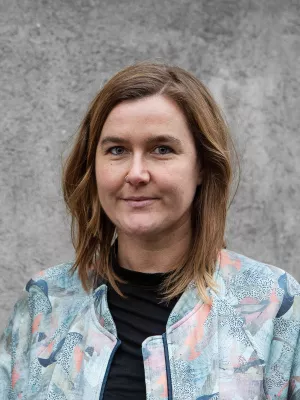
Maja Sager
Docent | Senior lecturer

Everyday Clandestinity : Experiences on the Margins of Citizenship and Migration Policies
Author
Summary, in English
The research is based upon a long-term ethnographic study with clandestine asylum seekers and asylum rights activists. The central focus is upon ten in-depth interviews with asylum seekers and nine interviews with activists and ‘experts’. Other forms of material (from the media, public events, websites of NGOs, etc.) are used to illustrate the context of the interview material and to analyse aspects of clandestinity in media and public debates.
A series of research questions have guided the process. These circulate around the experiences of clandestine asylum seekers, and how their position can be understood in relation to a gendered migration regime and to notions and practices of citizenship and belonging. The main research question is: How, through public representations, institutional practices and subjective experiences, is clandestinity constructed within the frames of the Swedish welfare state, and in relation to citizenship and migration policies?
The thesis offers a background analysis, a discussion of the theoretical framework and an outline of the methodological considerations. Thereafter follow three analytical chapters focussing on the ethnographic material. These chapters explore the experiences of the informants from the labour market, from the asylum process, and from an everyday life characterised by a lack of social rights and limited access to welfare entitlements. The final chapter summarises the thesis as well as offers some final reflections on the research questions and aims.
The study illuminates the racialised and gendered processes through which everyday lives in the family, in relation to civil society and to state institutions, shape – and are shaped by – clandestinity and deportability. Further, it illuminates the centrality of the position of clandestine asylum seekers in relation to the construction of citizenship and belonging, and shows how these processes are gendered at the level of symbols, institutions and identities. I also explore how different fields of social policies are interconnected and define the position of clandestinity. Clandestinity is shown to be a location characterised by exclusion and fragmentation on some levels, but also by limited kinds of collectivity and inclusion on other levels.
Department/s
- Department of Gender Studies
Publishing year
2011
Language
English
Full text
Document type
Dissertation
Publisher
Lund University
Topic
- Gender Studies
Keywords
- intersectionality
- feminist methodology
- migration regimes
- undocumented migrants
- clandestinity
- citizenship
- migration policy
- asylum rights
- migration
- gender
- welfare
Status
Published
Supervisor
- Diana Mulinari
- Tiina Rosenberg
ISBN/ISSN/Other
- ISBN: 978-91-7473-085-2
Defence date
25 February 2011
Defence time
13:00
Defence place
Kulturens auditorium, Tegnérsplatsen, Lund
Opponent
- Keith Pringle (Professor)

